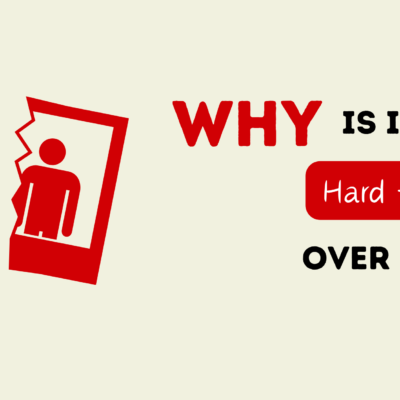Why Is It so Hard to Get over My Ex: Breakups are never easy. Whether you are the one who is breaking up or on the other person, the after-effects can be emotionally rough. Among the different types of challenges that follow a breakup, perhaps one of the most constant is the problem of getting over an ex-partner.
Even after time passes and we desire fresh starts, the memories of old relationships stick around, making us feel all kinds of things. So, why is it so hard to move on? So, in this article, we will talk about the psychological, biological, and social factors that contribute to the ongoing struggle of getting over an ex.
Also Read:
- Ways of Showing Love to Others.
- 10 Proven Step to Overcome Anxiety After Breakup.
- Tips to Make New Friends.
- Why Do I Feel Like My Friends Dont Like Me.
- Things You Need to be Done For Keeping a Healthy Marriage.
Why Is It so Hard to Get over My Ex?
Emotional Attachment
Central to the challenge of moving on from an ex-partner is the emotional attachment that forms during a relationship. We as humans are wired for connection, and when we invest time, energy, and emotions into a relationship, bonds form that can be challenging to cut off.
It is hard for almost all of us to break up, as they are usually intertwined with memories, shared experiences, and a sense of belonging. Even after a breakup, the emotional attachment stays, fueling feelings of longing and memories for what once was.
Loss and Grief
Breakups involve a substantial loss, which can be as similar to mourning the death of a relationship. Just as with grief, people go through stages of grief, including denial, anger, bargaining, depression, and finally acceptance.
Moving through these stages takes time and effort, and the power of emotions experienced can differ from person to person. It is important to recognize that getting over an ex is not a constant process; setbacks are common as you walk your way through the grieving process.
Identity Reconstruction
In many cases, romantic relationships become entangled with one’s sense of identity. Partners usually play manifold roles in each other’s lives, acting as confidants, companions, and sources of validation.
When a relationship ends, people may find themselves struggling with questions of self-worth and identity. The loss of a partner can leave a void that disrupts one’s sense of self, demanding a process of reflection and reconstruction to fill the gap left behind.
Cognitive Bias
The human mind can sometimes selectively concentrate on the positive parts of past experiences while downplaying the negative. This cognitive bias, known as rosy retrospection, can contribute to romanticizing past relationships, making it more difficult to let go.
Memories of happy moments and shared laughter may overpower the reasons for the breakup, leading people to romanticize the past and yearn for what they once had. Overcoming this bias needs a concerted effort to acknowledge and accept the reality of the relationship, flaws and all.
Fear of Loneliness
The chance of being alone can be difficult, especially after the end of a long-term relationship. Fear of loneliness usually drives people to cling to the familiarity of past connections, even if they are eventually unhealthy or unfulfilling.
This fear can manifest as an unwillingness to let go of an ex-partner, as the thought of facing the unknown without their presence feels overwhelming. Learning to embrace solitude and develop self-reliance is necessary for overcoming this fear and moving forward alone.
Social and Environmental Triggers
The environment we live in is filled with reminders of past relationships, from places we frequented together to mutual friends and shared possessions.
These social and environmental triggers can create strong emotional responses, starting up memories and emotions connected with an ex-partner. Avoiding these triggers completely is usually impractical, but learning to handle them without surrendering to memories is important for healing and growth.
Attachment Style
People have different attachment styles, which affect how they approach relationships and deal with breakups. Those with anxious attachment styles tend to crave closeness and comfort in relationships, making it more difficult for them to let go of an ex-partner.
On the other hand, people with avoidant attachment styles may struggle with intimacy and vulnerability, leading them to distance themselves emotionally after a breakup. Understanding one’s attachment style can deliver insight into why letting go is extremely challenging and guide efforts toward personal development and healing.
At The End
Getting over an ex-partner is a process that is filled with challenges, encompassing emotional, psychological, and social dimensions. From the lasting bonds developed during a relationship to the complexities of grief and identity reconstruction, the journey toward healing is complicated and deeply personal.
While the road toward healing may be difficult with setbacks, it is also a possibility for self-discovery and growth. By recognizing and addressing the factors that make it hard to let go, you can start your journey toward healing, eventually emerging stronger and more resilient than before.








